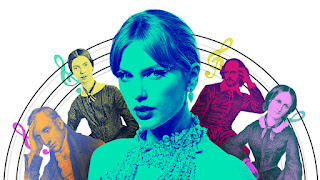Allison Mao Week 3: Dissociative Identity Disorder
What does it mean when someone says they are an “irl” on the internet? “Irl” stands for “in real life,” and, although this often refers to things that people do in their lives outside of social media, it is also a term that I’ve seen people with delusional attachments to fictional characters use. Turns out, this is part of the dissociative identity disorder, also known as DID.
Last year in June, I was a moderator on a Discord server for a video game I enjoyed. This meant I was in charge of keeping peace in the server and dealing with troublemakers. In the server, there were a few people who called themselves “irls.” Initially, I was rather confused. What did they mean by this? I learned that these people declared that they were the fictional characters themselves; sometimes, they were even multiple characters at once. The video game has a multiplayer mode involving player-versus-player combat, and one of the members in the server referenced this mode, saying that one of the characters was terrible. A member who was an irl got offended at this, demanding the other member to apologize. The conversation went a bit like this:
Server member: [Character] is terrible in the arena.
Irl: You’re calling me “terrible”?!
Server member: Huh?
Irl: I am [Character].
Server member: I’m only talking about their in-game playstyle though. They're not bad as a character.
Irl: I am the in-game character!
The irl was very angry at this, accusing the other member of being an ableist for “reality checking” them—a phrase used by irls when others remind them that they are not actually a fictional character, mentioning that they were not, in fact, that fictional character.
Seeing this, I was extremely confused. How could a person be a fictional character?
I learned that, whether the irl actually had a diagnosis or they were pretending to have the disorder for fun, they had DID. According to nurseslearning.com, DID is when one person has many personalities that are referred to as alter personalities, alternates, or alters. Together, the person themself is referred to as a “system.” Each personality may have different genders, races, ages, beliefs, and so much more. In a way, DID is sort of like multiple people in one body. These personalities are often created because of abuse and trauma the person experienced in their life. This way, it’s like one person has multiple identities. There is no one word that could encompass all the different personalities people with DID have.
After I learned this, I thought about that server member. How was their life different from mine? Could I judge them when I didn’t know what they’ve been through? The question floats in my head even now.
Source: https://www.nurseslearning.com/courses/nrp/NRP-1618/Section%205/index.htm


Hey Allison! I was initially drawn by your hook, which discussed a topic I did not have knowledge in, increasing my curiosity, Exploring identity disorders is a creative take on our overall identity topic. Using a real conversation from your discord server is an interactive way to explain DID opposed to just a textbook definition. I feel I was able to gain a deeper understanding about DID after seeing an example of it. Sharing your initial confusion helped establish a connection between yourself and the audience. I love how you were able to break down a serious and complex topic into an understandable explanation.
ReplyDelete